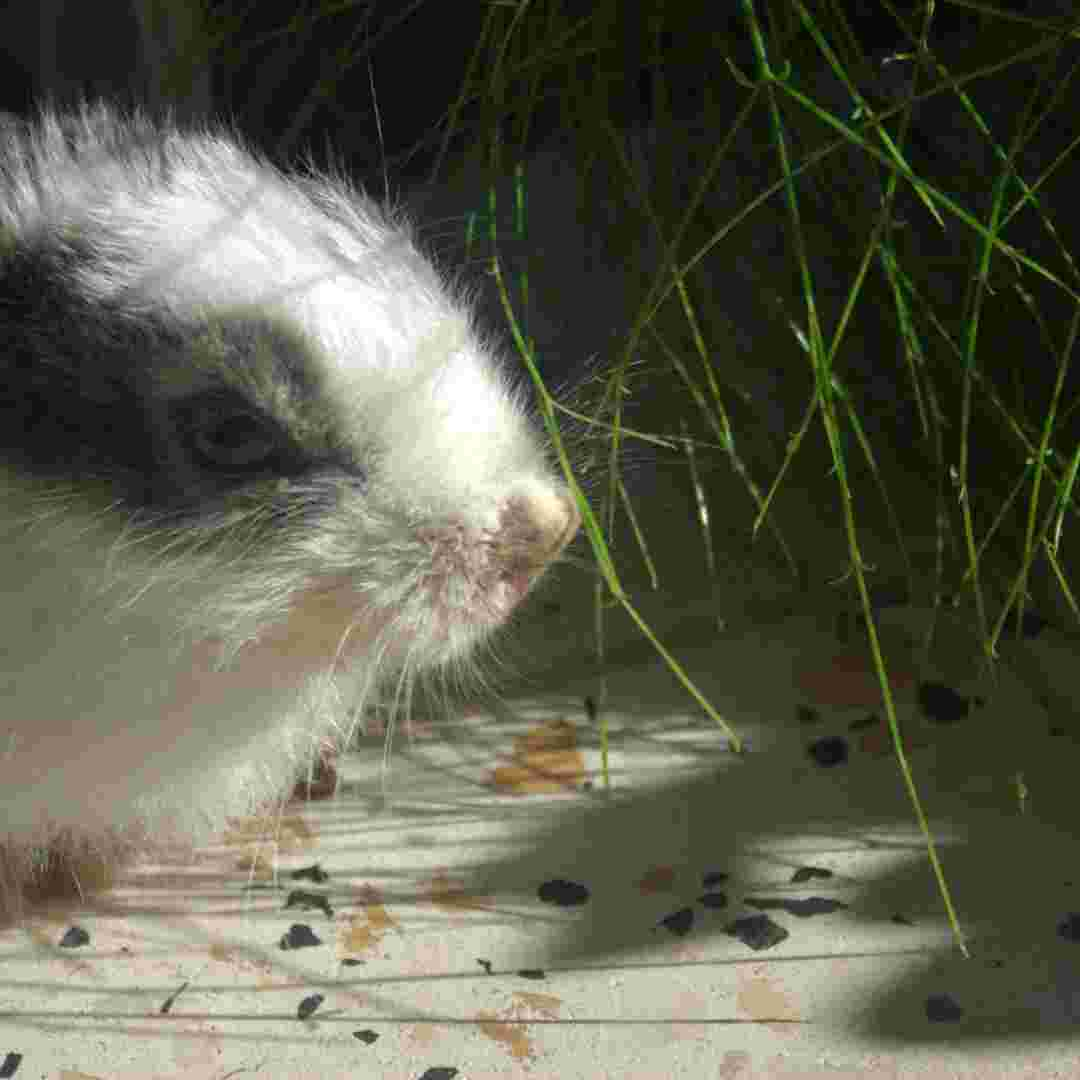Contents Table
Introduction
Common Rabbit Diseases and Prevention
How to Spot Human Rabbit-Related Diseases
Protecting Rabbits from Diseases with Vaccines
The Effects of Rabbit Diseases on Wildlife and Livestock
Safe Rabbit Handling to Avoid Diseases
Q&A
Conclusion
Introduction
Rabbits are adorable pets, but they can spread disease. Although rabbits are low-risk animals for transferring diseases to humans, some infections can be transmitted. Bacteria, viruses, fungi, and parasites are examples. It's crucial to understand the risks of rabbit ownership and take care to protect yourself and your family.
Common Rabbit Diseases and Prevention
Rabbits are lovely pets but sensitive to many diseases. Any rabbit owner must know how to prevent common rabbit infections.
Pasteurellosis is a prevalent rabbit illness. Bacterial infections can cause respiratory issues, abscesses, and death. Pasteurellosis causes sneeze, nasal discharge, and breathing problems. To prevent pasteurellosis, keep your rabbit's environment clean and bacteria-free. Clean your rabbit's cage, toys, and accessories regularly. Also, keep your rabbit away from other animals that may carry the bacteria.
Myxomatosis is another prevalent rabbit illness. Eye, ear, and vaginal edoema can result from this viral infection. It can potentially cause breathing issues and death. Avoid wild rabbits and other animals that may spread myxomatosis to protect your rabbit. Your rabbit's habitat should also be clean and infection-free.
Finally, rabbits can have ear mites. Microparasites can itch and irritate ears. Ear mites cause intense scratching, head shaking, and ear discharge. Ear mites can be prevented by frequently cleaning your rabbit's ears and removing infection sources. You should also keep your rabbit away from parasitic critters.
Understanding rabbit diseases and how to prevent them will help keep your rabbit healthy and happy.
How to Spot Human Rabbit-Related Diseases
Human zoonotic diseases are caused by rabbit-transmitted bacteria, viruses, and parasites. Most of these diseases are rare, but knowing their symptoms can help prevent their spread.
The most frequent rabbit-related diseases in humans are tularemia, leptospirosis, and ringworm. Bacterial tularemia causes fever, chills, and enlarged lymph nodes. Infected rabbits or their droppings transmit it. Fever, headache, muscle discomfort, and vomiting can result from leptospirosis. Infected pee or water spreads it. Ringworm is a fungal condition that causes red, itchy skin. Infected rabbits or their fur spread it.
If you've touched a rabbit or its environment, beware for these diseases. Fever, chills, headache, muscle discomfort, swollen lymph nodes, and a red, itchy rash are common rabbit-related symptoms in humans. If you have these symptoms, visit a doctor immediately.
Handling rabbits and their environment requires proper cleanliness. This includes wearing gloves and a face mask and washing your hands after handling rabbits or their environment with soap and water. Keep rabbits and their habitat clean and debris-free.
Know the signs and symptoms of rabbit-related diseases in people and practise appropriate hygiene when handling rabbits or their habitat to prevent their spread.
Protecting Rabbits from Diseases with Vaccines
Rabbit illnesses can be prevented by vaccines. Vaccines minimise infection risk and prevent some diseases. Vaccines function by injecting weakened or destroyed viruses or bacteria. This activates the immune system to manufacture antibodies to combat the disease in the future.
Rabbits can contract deadly infections. Vaccines can prevent myxomatosis, rabbit hemorrhagic illness, and pasteurellosis, three frequent rabbit diseases. This viral illness is carried by mosquitoes and other biting insects. It causes fever, lethargy, eye, ear, and vaginal edoema, and death. A infectious viral disease, rabbit hemorrhagic sickness can cause fever, lack of appetite, and death. Bacterial pasteurellosis can cause respiratory issues, abscesses, and mortality.
All of these diseases have vaccines that veterinarians should give. Rabbits need annual vaccinations and more often if they are at risk. New rabbits in the home should be vaccinated.
There are other ways to protect rabbits from disease than vaccinations. Keep the rabbit's environment clean and pest-free, avoid wild rabbits, and feed it well.
Rabbit illnesses can be prevented by vaccines. They can minimise infection risk and prevent several diseases. Rabbits should have annual vaccinations from a vet. Beyond immunisations, rabbits need a clean habitat and a good food.
The Effects of Rabbit Diseases on Wildlife and Livestock
Rabbit-related diseases can harm livestock and wildlife. Bacteria, viruses, and parasites can cause these disorders. These disorders can be deadly or cause long-term health issues.
Myxomatosis is a prevalent rabbit illness. This virus, carried by mosquitoes and other biting insects, can severely affect rabbits' respiratory and ocular systems. Some cases are fatal. Livestock and wildlife can potentially contract myxomatosis. It can cause blindness and other eye disorders in wildlife and serious respiratory difficulties in animals.
Rabbit hemorrhagic sickness is another prevalent rabbit disease. Direct rabbit contact spreads this virus, which can induce organ failure and serious haemorrhage. Some cases are fatal. Livestock and wildlife can also contract RHD. In livestock and wildlife, it can cause serious bleeding and organ failure and breathing difficulties.
Rabbit-related diseases can infect humans. Bacterial tularemia can be spread to humans by rabbits. Fever, chills, and other flu-like symptoms can result.
In conclusion, rabbit-related diseases can harm livestock and wildlife. These illnesses can infect people and other animals and create serious health issues. To prevent these diseases, rabbit vaccination and avoidance of diseased animals are crucial.
Safe Rabbit Handling to Avoid Diseases
Rabbits are popular pets, but they can spread diseases. Take measures when handling rabbits to protect yourself and your pet.
Always wash your hands before and after rabbit handling. This reduces your rabbit's illness risk. Your rabbit's dwelling space should also be clean and free of waste. This will reduce environmental bacteria and viruses.
Please handle your rabbit gently and support its body. Never pick up a rabbit by its ears or tail to avoid damage. Support its body with both hands and hoist it carefully.
Being aware of rabbit sickness symptoms is very vital. If your rabbit seems sick, take it to the vet. This will help detect and treat ailments early.
Follow these simple actions to protect yourself and your pet. Care for your rabbit and you can enjoy years of companionship.

Q&A
1. Can rabbits infect humans?
Rabbits can spread human diseases. This includes tularemia, ringworm, and salmonellosis.
2. What are these diseases' symptoms?
Tularemia causes fever, chills, headache, muscle aches, and weariness. Ringworm may cause a red, scaly rash. Diarrhoea, fever, and stomach cramps are salmonellosis symptoms
3. How can I protect my rabbit from these diseases?
Keep your rabbit clean, feed them well, and take them to the vet for checkups to prevent these ailments.
4. How can I avoid these diseases?
Wash your hands after handling your rabbit or their habitat, wear gloves when cleaning their cage, and avoid wild rabbits to avoid these infections.
5. What should I do if my rabbit has one of these diseases?
You should take your rabbit to the vet immediately if you suspect one of these conditions. Your vet can diagnose and treat the condition.
Conclusion
In conclusion, rabbits can transmit several diseases to humans. Handle rabbits with care and keep them clean. Regular vet visits are also necessary to keep your rabbit healthy and disease-free.
